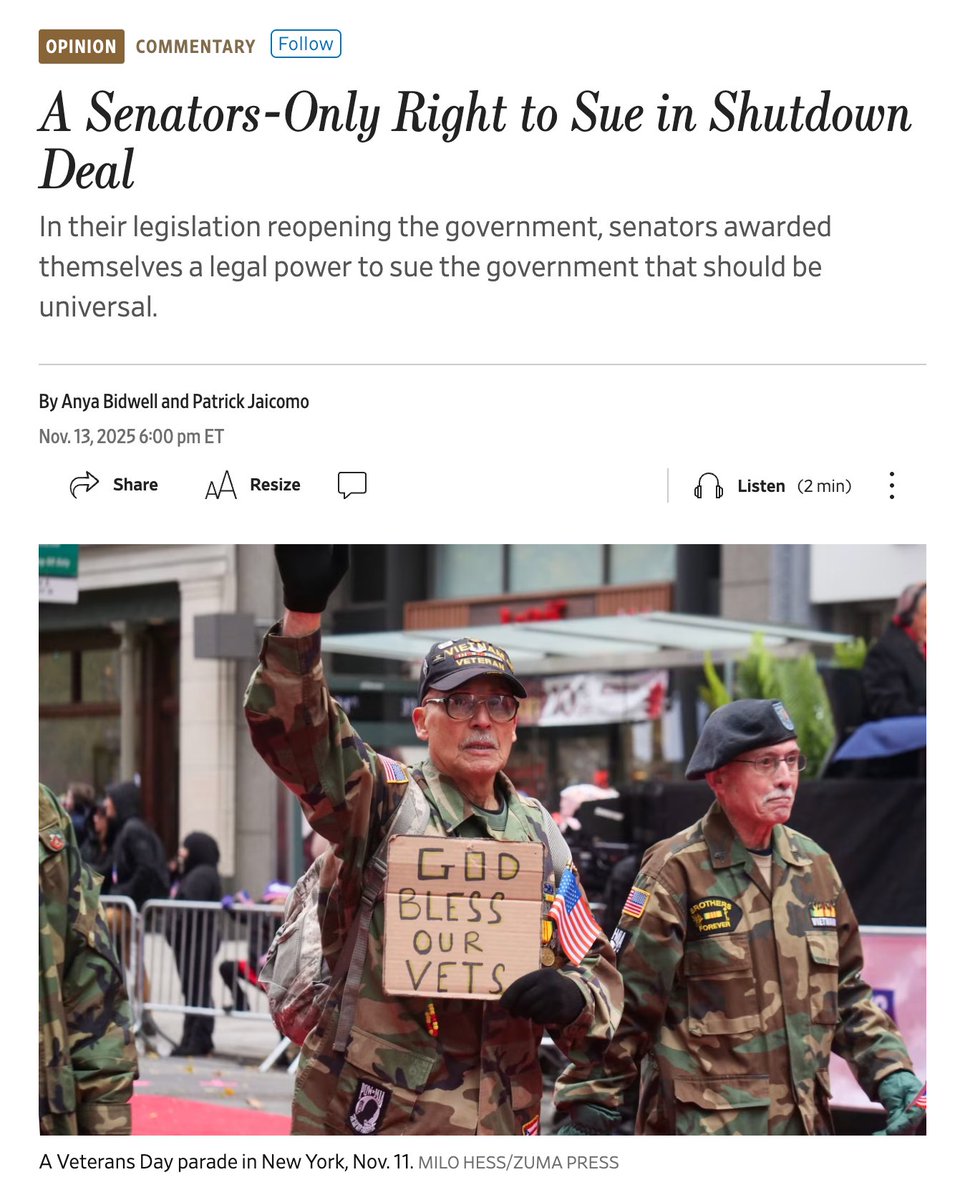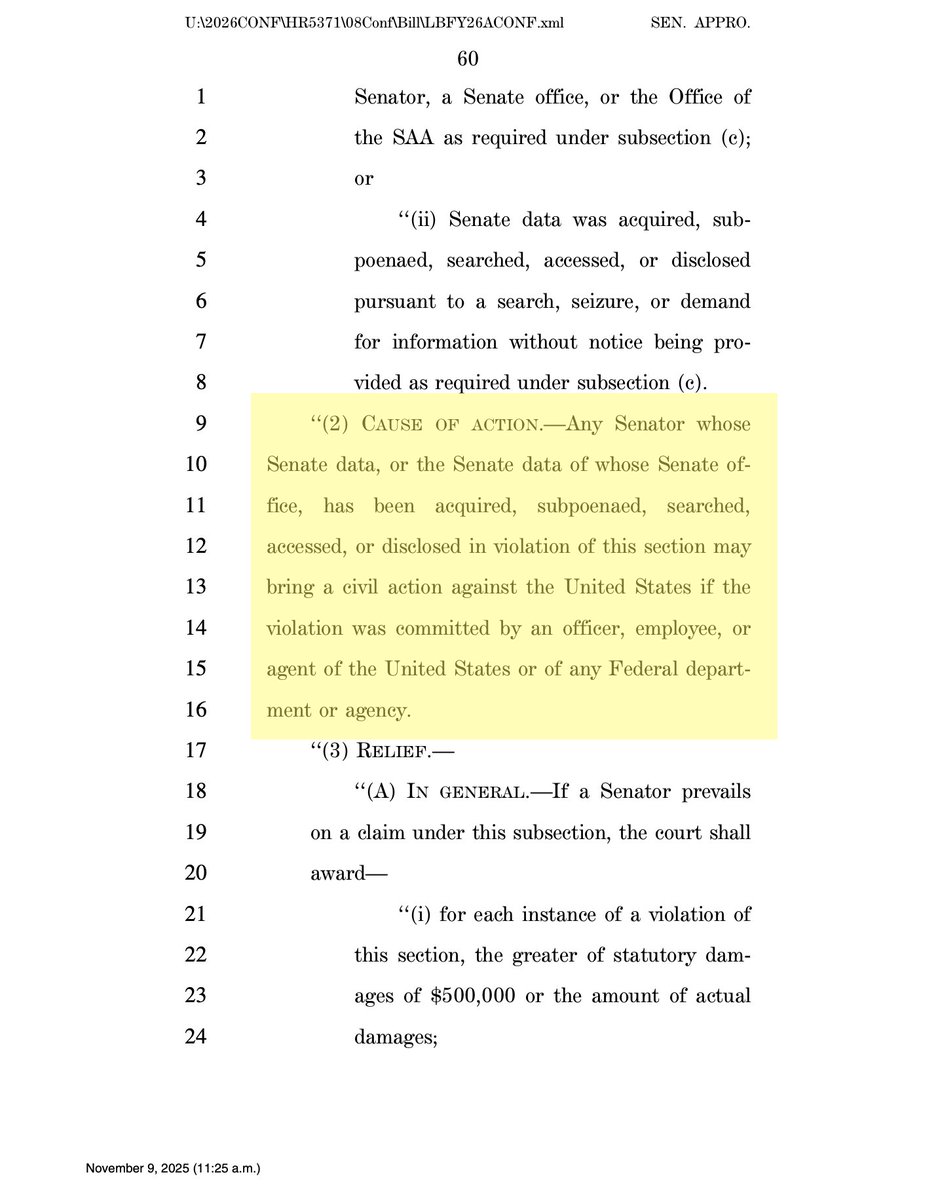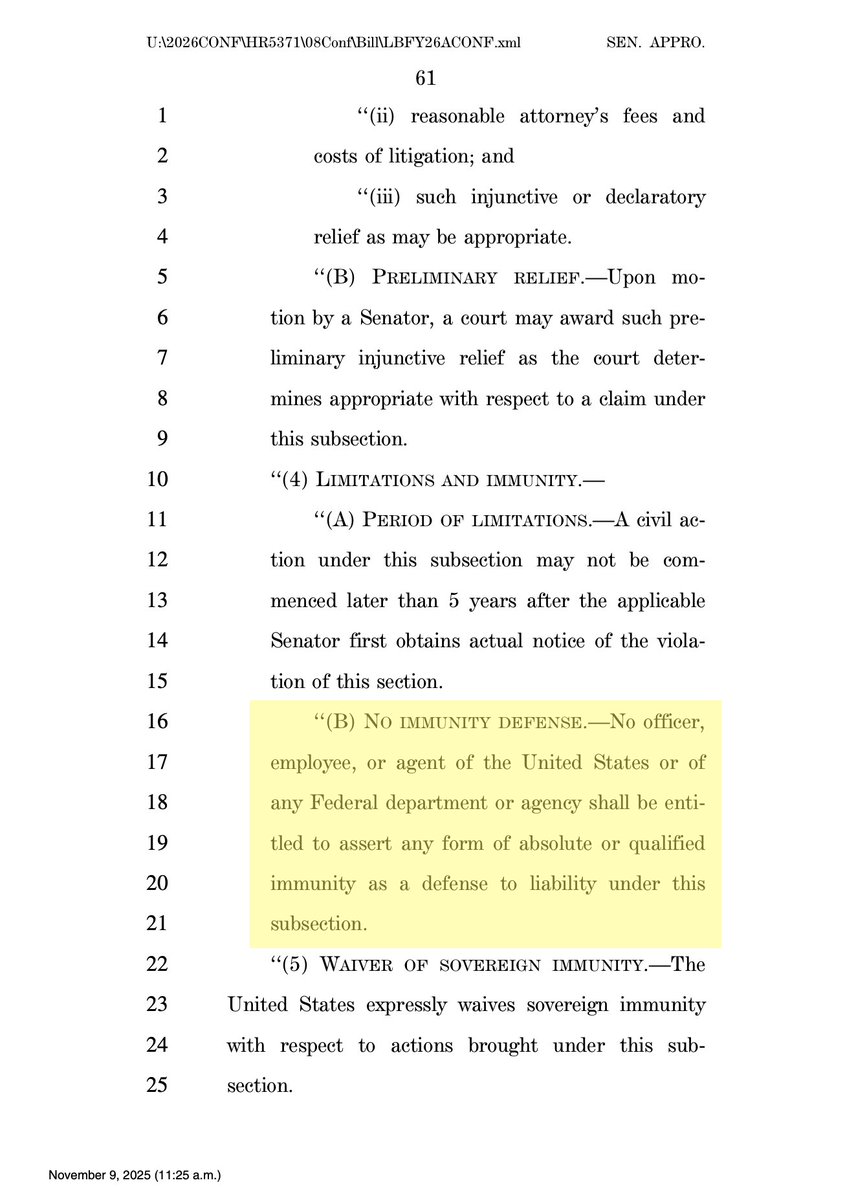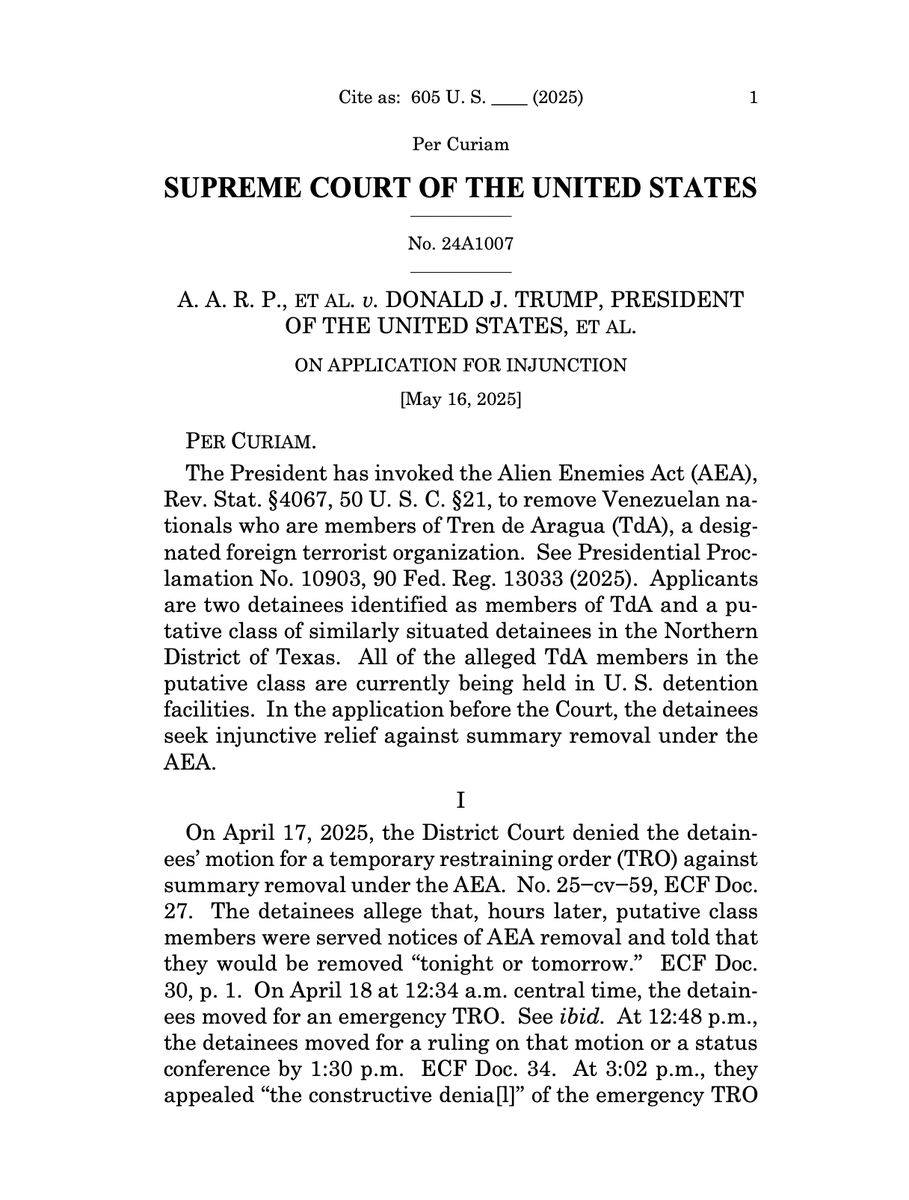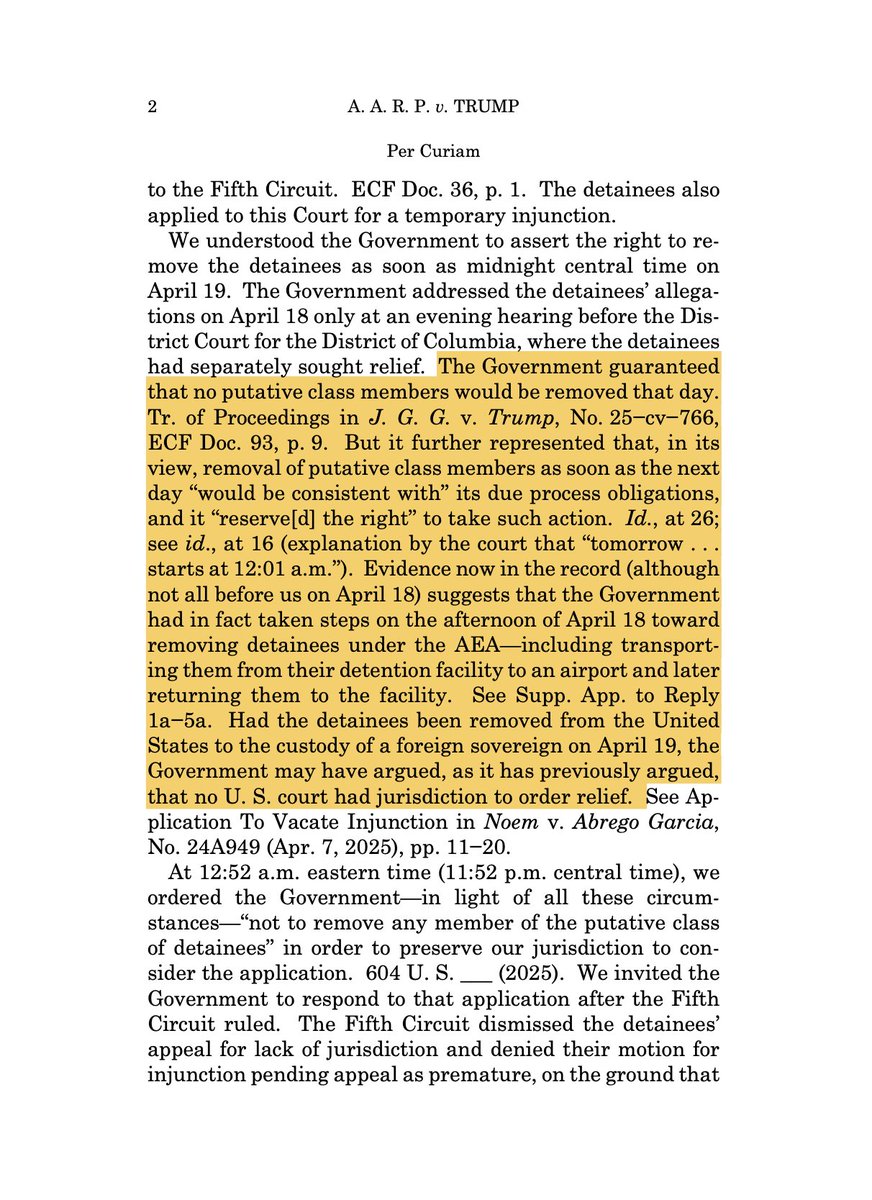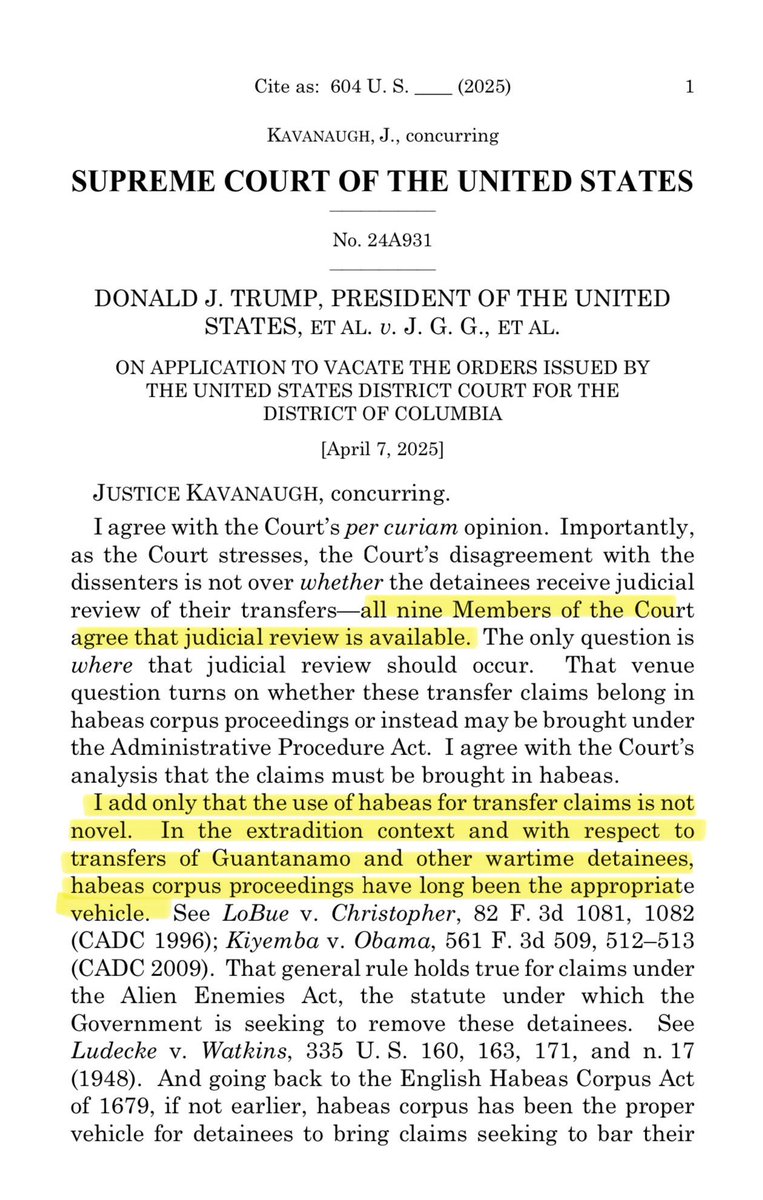🧵In Egbert v. Boule today, #SCOTUS has all but overruled Bivens without actually doing so. In effect, the Court has enshrined #FederalImmunity and rights without remedies. To get there, the Court has, again, changed the shifting rules for Bivens . . . 1/
supremecourt.gov/opinions/21pdf…
supremecourt.gov/opinions/21pdf…

In denying both 1st and 4th A. claims against a CBP agent who shoved down an innkeeper in his driveway and then retaliated against him for complaining, the Court retcons its Bivens jurisprudence and essentially now announces a rational-basis style test for Bivens.
2/
2/

The Court also says that the relevant inquiry for considering the Bivens context is not the facts of any given case, but some undefined broad category--in this case Border Agents and national security.
3/
3/

Adding to that, the Court says that it and lower courts can just make up arguments for the government--even if it does not raise them below, essentially making the Judiciary an advocate against constitutional accountability (and citing @IJ case Oliva v. Nivar):
4/
4/

Justice Gorsuch concurs. He has the courage to say that what the Court is doing Egbert makes no sense under its precedent and that, if it wants to overrule Bivens, it should pluck up the courage and do it instead of just continuing to beat around the bush:
5/

5/


Sidenote: Gorsuch relies heavily on the idea that a cause of action to enforce a constitutional right is a right separate and apart from the constitutional right its enforcing. If that's true, I have two questions:
6/
6/

(1) If Congress must provide a permission slip to enforce a constitutional right, what purpose does the Bill of Rights serve? At that point, it's just a political document, contra Marbury. Without a remedy, a right is not a right. (2) If Congress must provide a cause of . . .
7/
7/
. . . action as a matter of separation of powers, why not for equitable relief? The Court permits claims to enjoin ongoing constitutional violations, despite no statutory cause of action.
(@IJ discusses some of these things in our amicus)
8/
supremecourt.gov/DocketPDF/21/2…
(@IJ discusses some of these things in our amicus)
8/
supremecourt.gov/DocketPDF/21/2…
Justice Sotomayor dissents with Breyer and Kagan. She points out, like Gorsuch, that the Court's opinion makes no sense under the court's Bivens precedent.
9/
9/

So, Justice Sotomayor argues that the Fourth Amendment claim does not arise in a "new context" and should be permitted to go forward.
10/
10/

. . . But even Justices Sotomayor, Breyer, and Kagan, agree with the Court (at least under it's precedent) that there is no Bivens claim available under the First Amendment:
11/
11/

.@IJ has 2 Bivens cases pending before the Court, but both involve claims against domestic police. What the Court does with those petitions (shortly) will indicate whether Bivens has anything left. Or whether #FederalImmunity is absolute.
/end
ij.org/case/federal-p…
/end
ij.org/case/federal-p…
• • •
Missing some Tweet in this thread? You can try to
force a refresh


